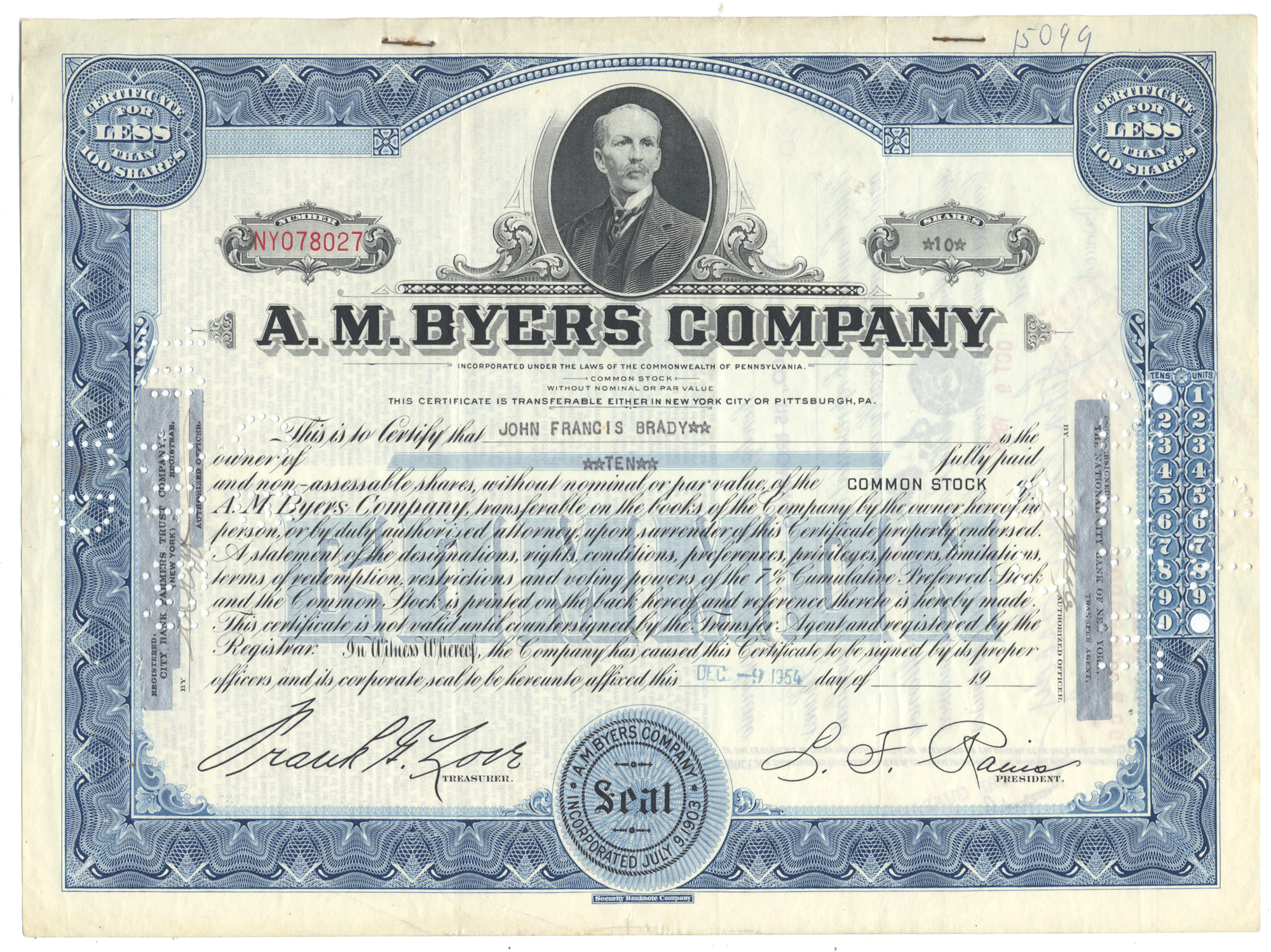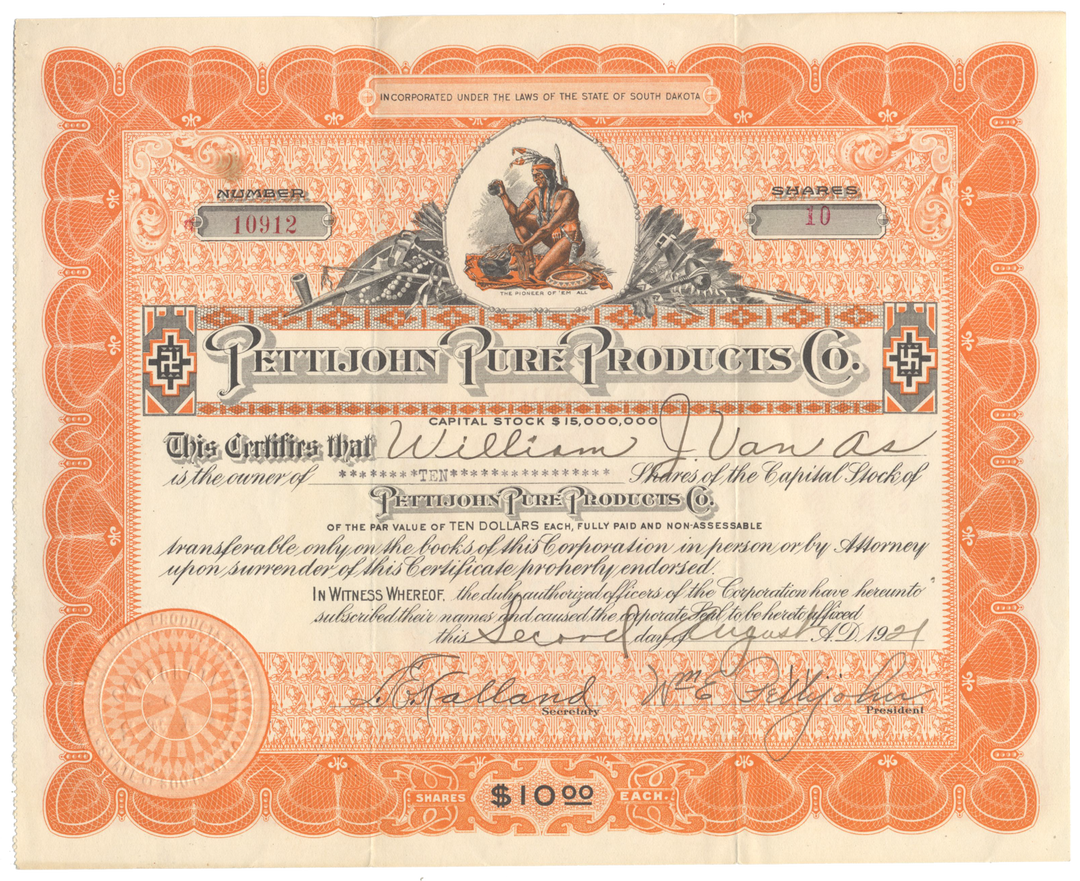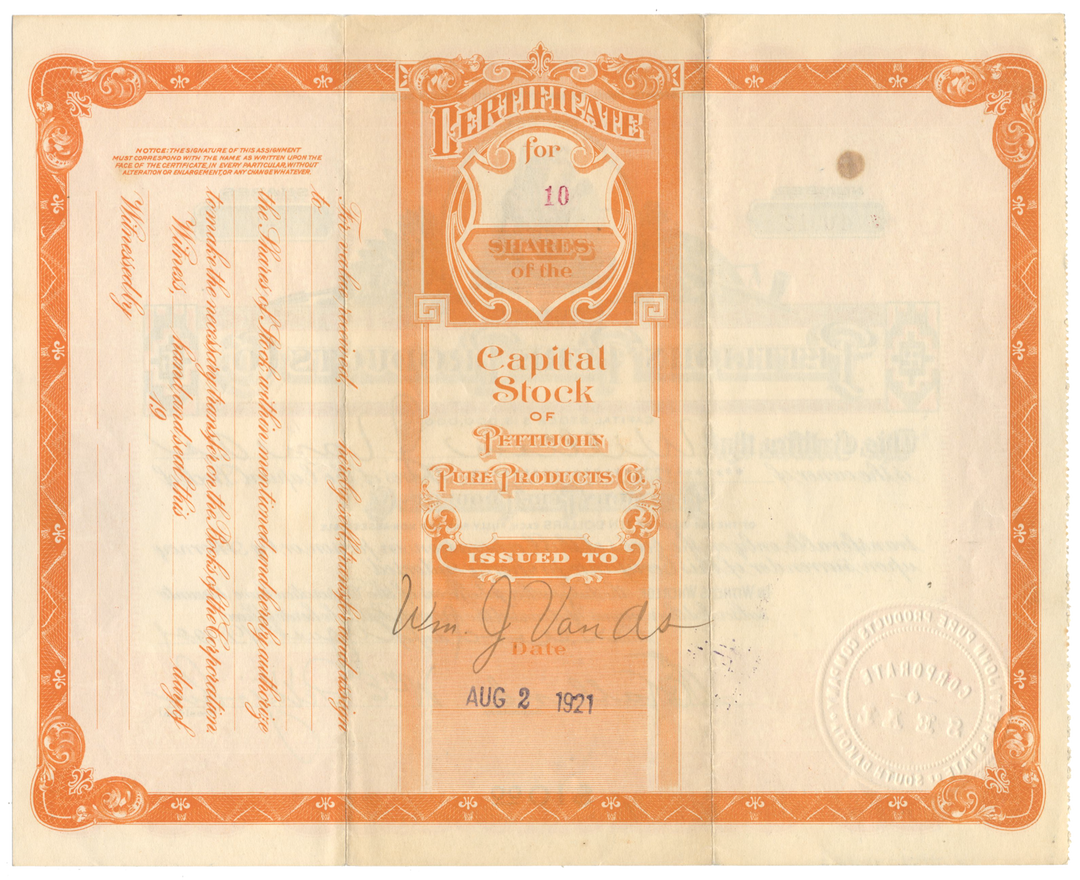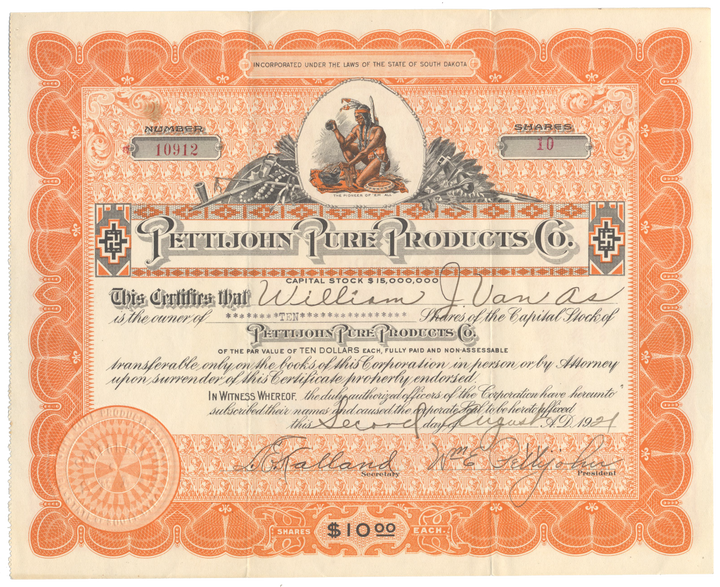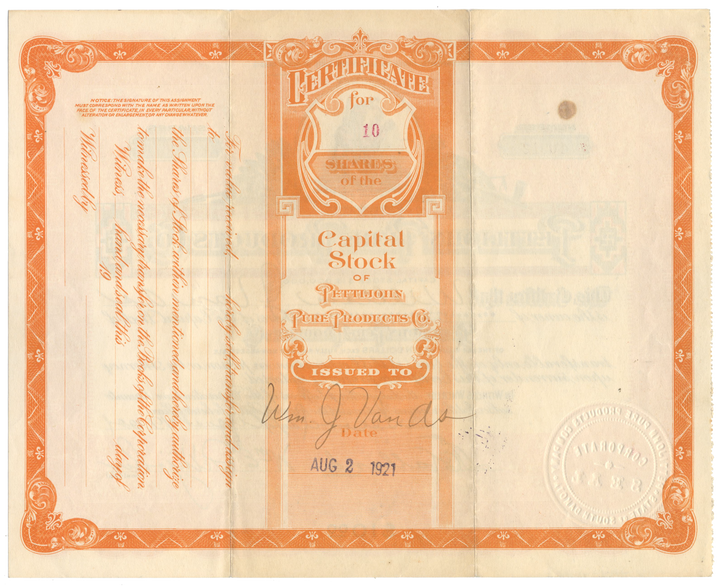Pettijohn Pure Products Co.
- Guaranteed authentic document
- Orders over $75 ship FREE to U. S. addresses
Product Details
| Company | Pettijohn Pure Products Co. |
| Certificate Type | Capital Stock |
| Date Issued | August 2, 1921 |
| Canceled | No |
| Printer | Not indicated |
| Signatures | Hand signed |
| Approximate Size |
10 1/4" (w) by 8 1/4" (h) |
|
Product Images |
Show the exact certificate you will receive |
| Authentic | Yes |
| Additional Details | Signed by Pettijohn family member |
Historical Context
The Pettijohn Pure Products Co. was organized by William A. Pettijohn in South Dakota but was based in Minneapolis, Minnesota. The company was an early producer of grain cereals, that were said to have been sourced from Native American fields.
William A. Pettijohn, whose mother was half Mdewakanton Dakota, was one the sons of Lucy and Eli Pettijohn, and became a successful breakfast-food manufacturer in California. In 1890, at the age of 36, he returned to his original hometown (Minneapolis) at the invitation of several businessmen who were eager to partner with him. Within three years, these men had swindled him, and he was forced to sell his company at a great loss.
In 1900 William staged a comeback, announcing his return to the industry in a bold, colorful brochure. Promoting both his pioneer and Dakota heritages, William exhorted the reader to “Be a Good Indian” and to “Eat Pettijohn’s Indian Brand Products.” His company’s slogans were “The Pioneer of ’Em All” and “Under the Indian Brand.” Anointing Pettijohn the “Wizard of Cereal Foods,” the brochure presented his history as a prominent manufacturer whose breakfast foods had become a household name.
The cover of the brochure features an Native American man dressed in a loincloth and eagle-feather headdress, as if he is about to go into battle. He kneels as he pounds grain upon a stone. The scene grossly misrepresents traditional native gender roles while also expressing white stereotypes that identified Native American men as either warriors or children. The depiction effectively emasculates the man by casting him in a traditional female role even while dressed as a warrior. The slogan “Be a Good Indian” today would be both patronizing and racist in its assumptions that native people should be treated as children and that they are bad unless qualified as good.
A different interpretation might say that the company’s advertising could be interpreted more positively - it does not deny Pettijohn’s Native American heritage but, rather, celebrates it. One of the products bears a Dakota name, Wamana-Haci (Indian Mixture), and the company logo is an illustration of a warrior, although inaccurate.
Heralding William’s return to cereal manufacturing, the brochure concludes with a cultural reclamation, albeit a dubious one, of his family’s Dakota heritage: “Pettijohn’s back! The whole country will know it and welcome the news. The good Indian is marking a trail to your grocer’s door.”
The company went into receivership multiple times, the last being in 1925.
Related Collections
Additional Information
Certificates carry no value on any of today's financial indexes and no transfer of ownership is implied. All items offered are collectible in nature only. So, you can frame them, but you can't cash them in!
All of our pieces are original - we do not sell reproductions. If you ever find out that one of our pieces is not authentic, you may return it for a full refund of the purchase price and any associated shipping charges.




